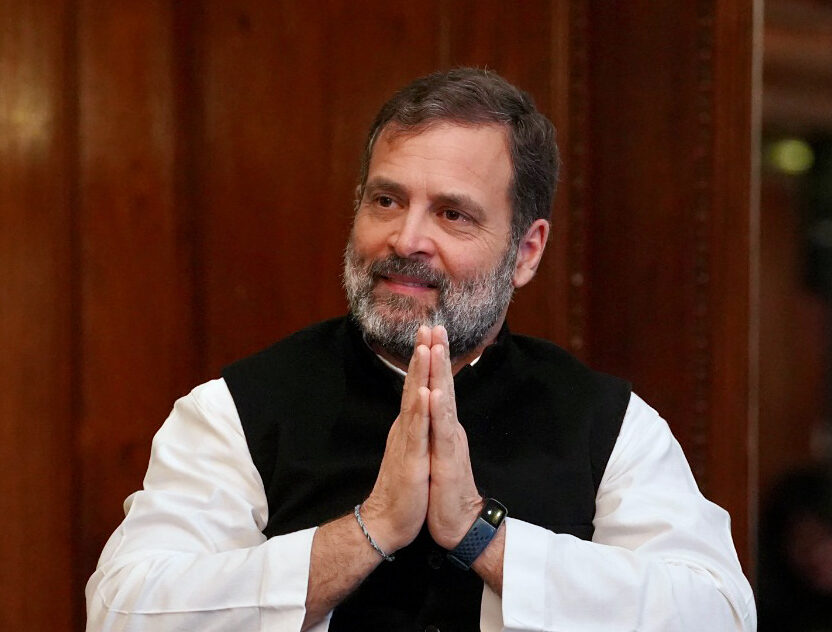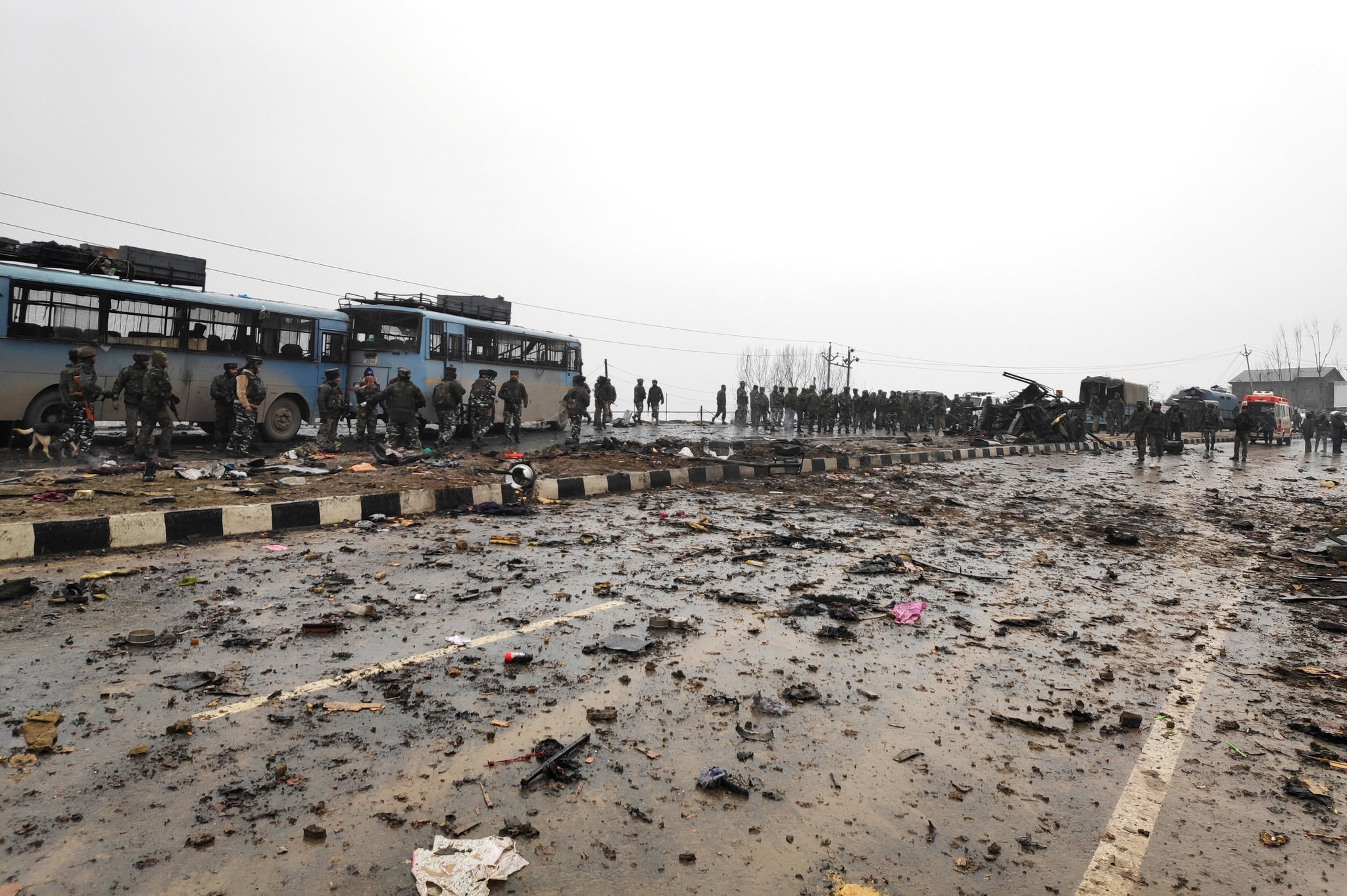


Congress leader, Rahul Gandhi, paid homage to slain singer and party member, Sidhu Moosewala, at a rally in Punjab. In his speech, he criticized Prime Minister Narendra Modi and the BJP for their divisive methods and promised solutions for issues such as farmers' loans and Punjab's ongoing drug problem. However, Gandhi did not mention the ruling Aam Aadmi Party, highlighting the tensions between the two parties in the state. Additionally, the Indian Meteorological Department predicts favorable weather conditions for the upcoming monsoon season.
Rahul Gandhi Pays Tribute to Slain Singer Sidhu Moosewala, Raises Concerns in Punjab Rally
Background
Rahul Gandhi, former president of the Indian National Congress (INC), visited Punjab on June 11, 2022, to pay homage to late singer and party member Sidhu Moosewala, who was tragically killed days earlier. The visit comes amid a series of political developments in Punjab, including ongoing tensions between the INC and the ruling Aam Aadmi Party (AAP).
Speech and Key Points
During his rally in Punjab's Abohar district, Gandhi paid tribute to Moosewala and criticized the Bharatiya Janata Party (BJP)-led central government. He alleged that the BJP promotes divisiveness and hate speech, leading to the spread of violence and social unrest.
Gandhi also addressed issues facing Punjab, including farmers' loans and the ongoing drug problem. He promised that the INC would provide solutions to these challenges if elected to power. Notably, he did not mention the AAP in his speech, highlighting the strained relations between the two parties in the state.
Weather Forecast
Meanwhile, the Indian Meteorological Department (IMD) has predicted favorable weather conditions for the upcoming monsoon season in Punjab. The agency expects the monsoon to arrive on time and bring adequate rainfall, which is crucial for agriculture and water resources in the state.
FAQs
1. Who is Sidhu Moosewala? Sidhu Moosewala was a popular Punjabi singer and songwriter known for his unique style and socially conscious lyrics. He was shot and killed in Punjab on May 29, 2022.
2. Why did Rahul Gandhi visit Punjab? Gandhi visited Punjab to pay homage to Sidhu Moosewala and address a rally, where he criticized the BJP and discussed pressing issues facing the state.
3. What were the main points of Gandhi's speech? Gandhi accused the BJP of promoting divisiveness and criticized the government's handling of farmers' loans and the drug problem in Punjab.
4. Why didn't Gandhi mention the AAP in his speech? Gandhi's omission of the AAP in his speech highlights the ongoing tensions between the INC and AAP in Punjab. The two parties have been competing for power in the state since the AAP's landslide victory in the 2022 assembly elections.
5. What is the current weather forecast for Punjab? The IMD predicts favorable weather conditions for the upcoming monsoon season in Punjab, with the monsoon expected to arrive on time and bring adequate rainfall.

The Indian National Congress (INC) has announced its plans to launch a month-and-a-half-long campaign in Jammu and Kashmir on April 22. The purpose of the campaign is to demand the restoration of statehood and to further the “Save the Constitution” movement. With the recent appointment of Syed Naseer Hussain as the new J&K in-charge, the party hopes to regain its lost support in the Union Territory. This campaign comes at a crucial time, as former supporters of the Congress leader Ghulam Nabi Azad have recently dissolved their party, raising questions about their political future. The Congress hopes to use this opportunity to highlight the BJP's failures in empowering elected governments and its betrayal over statehood.

Thousands of citizens in Pune are rallying together through an online petition to demand the protection of their city's hills and hill slopes from any construction. The petition is addressed to the former Pune Municipal Commissioner and Chairman of the state-appointed Committee on Bio-Diversity Park and Hill Top Hill Slopes. The citizens are concerned that the committee's review may result in allowing construction on the hills, while strict measures have already been mandated by the government to prevent it. The citizens stress the importance of preserving these natural areas for the city's ecological balance and urge the government to uphold its promise to future generations.

After the devastating terror attack in Pahalgam, Jammu and Kashmir, India has suspended the 1960 Indus Waters Treaty with Pakistan. This decision was made during a key meeting chaired by Union Home Minister Amit Shah, with discussions on potential actions being taken against Pakistan. As tensions between the two countries continue to escalate, Indian leaders have condemned Pakistan for their involvement in the attack and have vowed to take strong measures in response.

The Indian Army made its first major move since the Pahalgam terror attack on April 22, as they killed top Lashkar-e-Taiba (LeT) commander Altaf Lalli in an encounter in Jammu and Kashmir's Bandipora district. The security forces are on the hunt for the terrorists responsible for the brutal killing of 26 civilians and have launched a massive anti-terror operation. In other developments, Indian Army Chief General Upendra Dwivedi visited Srinagar for a security review meeting and the authorities demolished the houses of two suspected terrorists involved in the Pahalgam attack.

In a hearing at the Supreme Court, the bench rebuked Congress leader Rahul Gandhi for his "irresponsible" comments about freedom fighter Vinayak Damodar Savarkar. The judges highlighted the need to show respect for India's freedom fighters and questioned whether Gandhi was aware of his grandmother and Mahatma Gandhi praising Savarkar. The court also stayed an Allahabad High Court order that refused to dismiss a lower court's summons against Gandhi over his alleged remarks about Savarkar.

The Supreme Court has stepped in to warn Congress MP Rahul Gandhi over his comments about India's independence activist Veer Savarkar, staying a trial court's summons to the politician. The top court emphasized that Savarkar is a highly respected figure in Maharashtra and stated that no one would be allowed to make derogatory remarks about freedom fighters. The court also pointed out that Gandhi's family has had a history of praising Savarkar and Gandhi himself has been warned that the court will take suo motu cognizance of any such remarks. Additionally, the article also mentions an attack in Jammu and Kashmir that has led to heightened tensions between India and Pakistan.

In a successful operation by the security forces, a Lashkar-e-Taliba (LeT) terrorist associate, identified as Altaf Lalli, was killed in an ongoing encounter in the Bandipora district of Jammu and Kashmir. The encounter began after the security forces received intelligence about the presence of terrorists in the area. Two security personnel have also been injured in the exchange of fire and are currently undergoing treatment at a nearby hospital. The clash highlights the continued efforts of the security forces to combat terrorism in the region.

The Telangana-Chhattisgarh border is a hotbed of tension as security forces step up their efforts to root out Maoist activity from the region. Top Maoist leader Hidma is the target of current high-security operations, with forces strategically advancing through previously inaccessible areas. With mounting pressure, sources indicate that the hold of the Maoists in the region is gradually weakening, making for a tense and critical situation.

As the nation grapples with the aftermath of a terror attack in Pahalgam, security forces are undertaking a massive operation in the dense Karregutta hills forest to eliminate the heart of Naxal command. This operation, involving 7,000 personnel and cutting-edge technology, aims to strike a blow at Naxalism by targeting top leaders of the PLGA Battalion No. 1. This bold move by the CRPF, with the Director General personally overseeing the operation, marks a turning point in the fight against Maoist insurgency. With five Naxals already killed and more likely to come, the operation is being hailed as a decisive victory and could potentially spell the end of Naxalism in India.

The US Government has publicly criticized The New York Times for its reporting on the recent terror attack in Pahalgam, Kashmir, calling attention to the difference between the newspaper's use of "militant" instead of "terrorist." This choice of words is not only misleading but also minimizes the severity of the attack, which was claimed by a Pakistan-based group with links to Lashkar-e-Taiba. The US House Foreign Affairs Committee took to social media to point out the error and highlight the real nature of the attack, noting that it has significant implications for regional security.